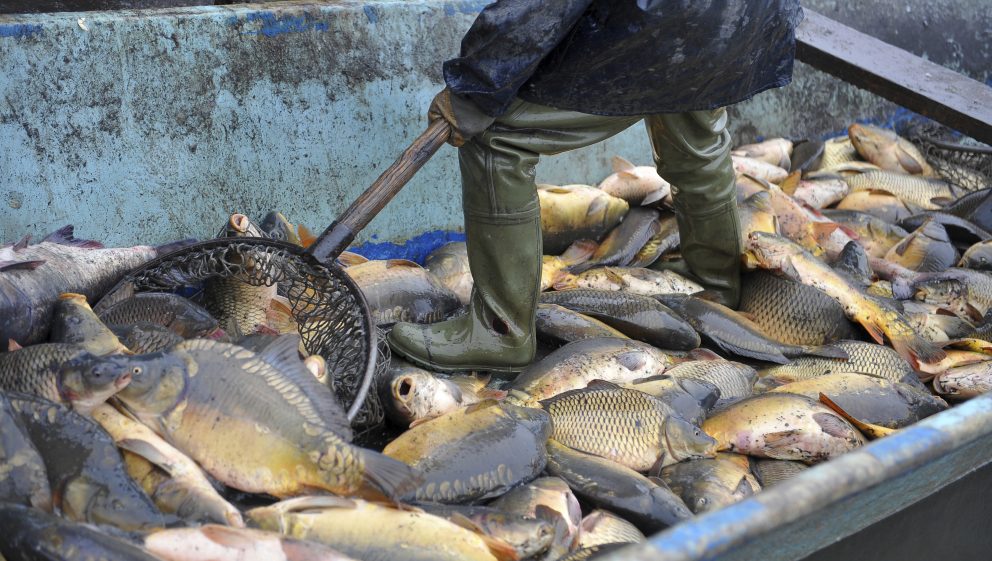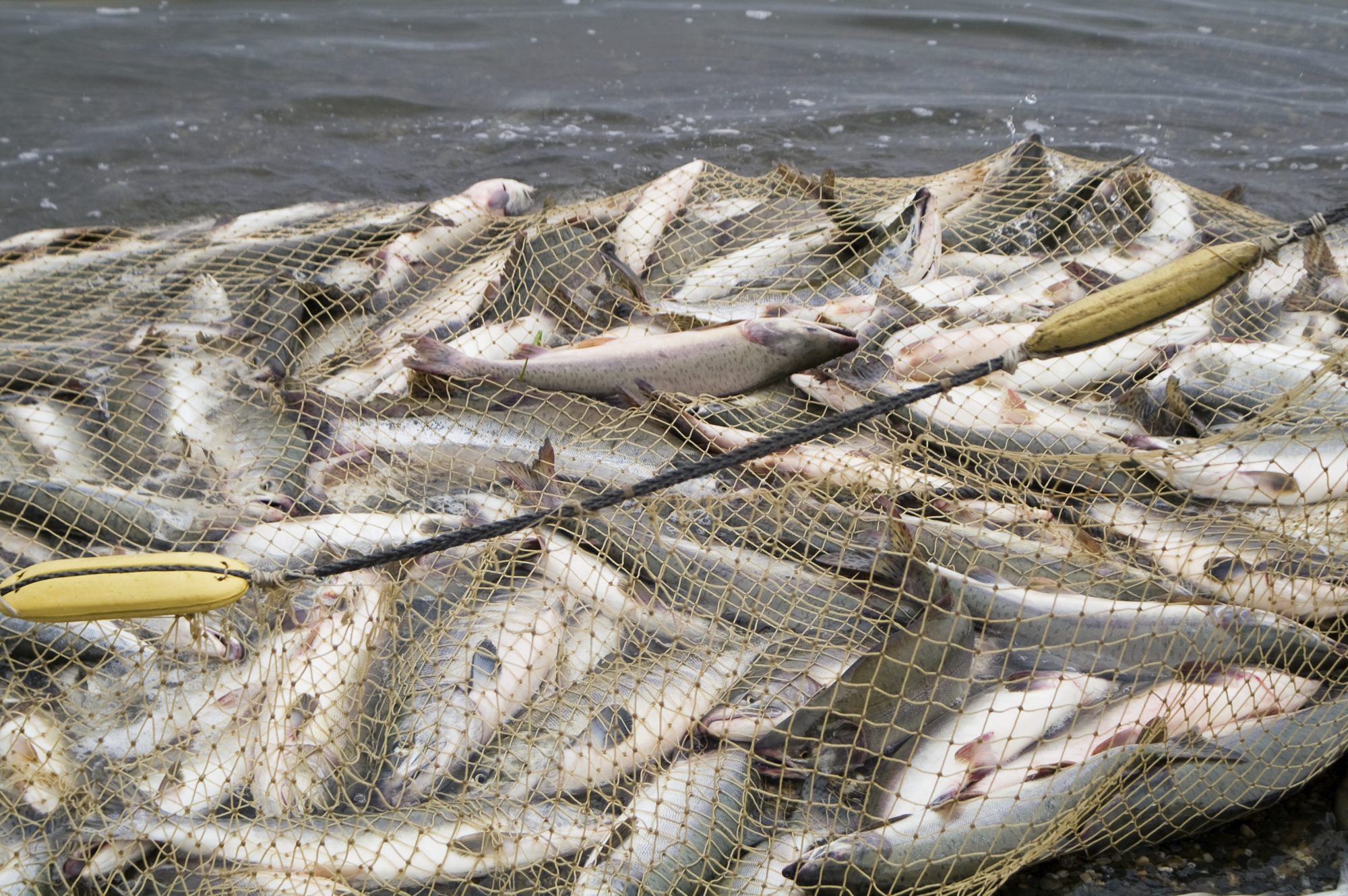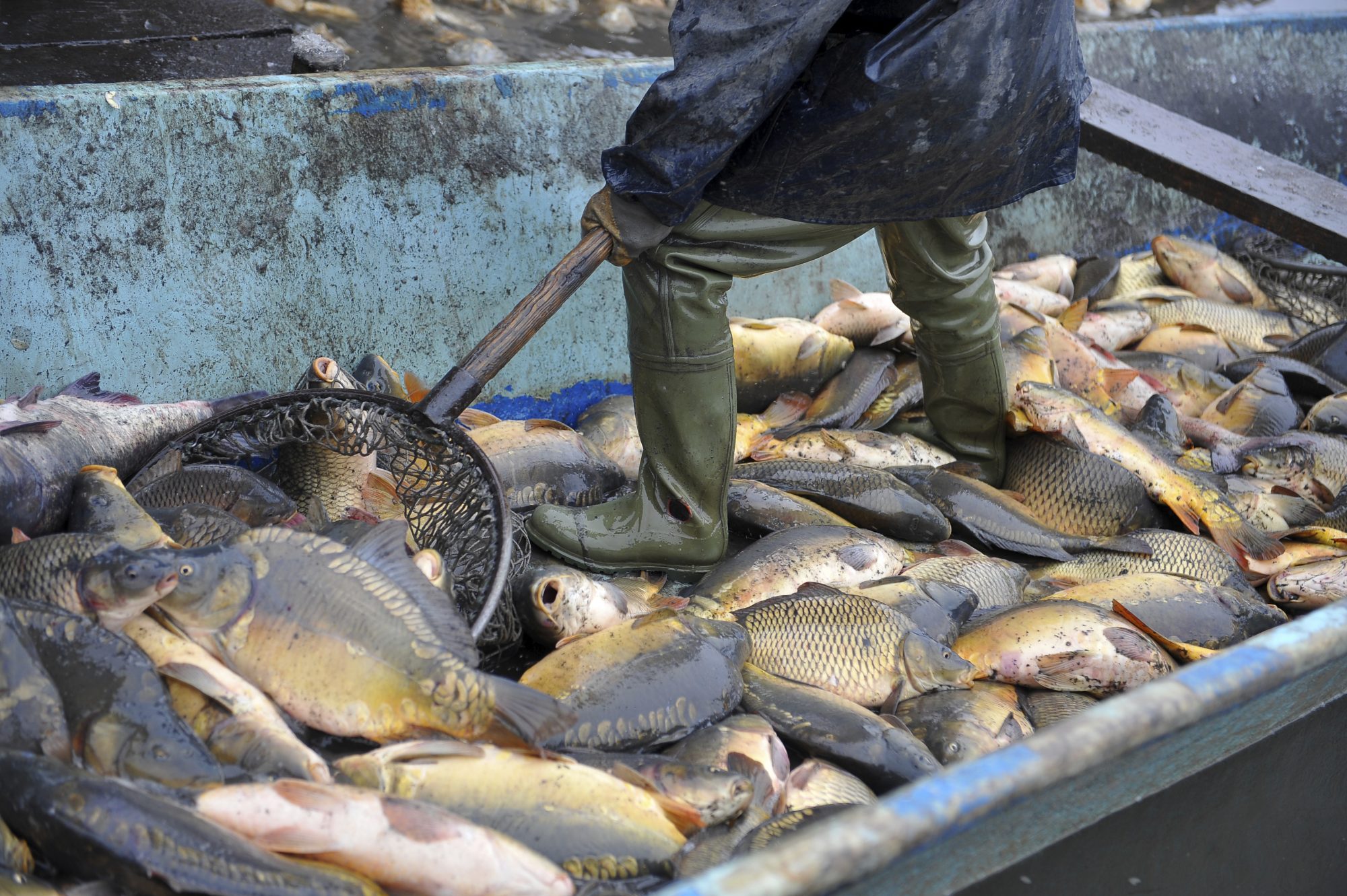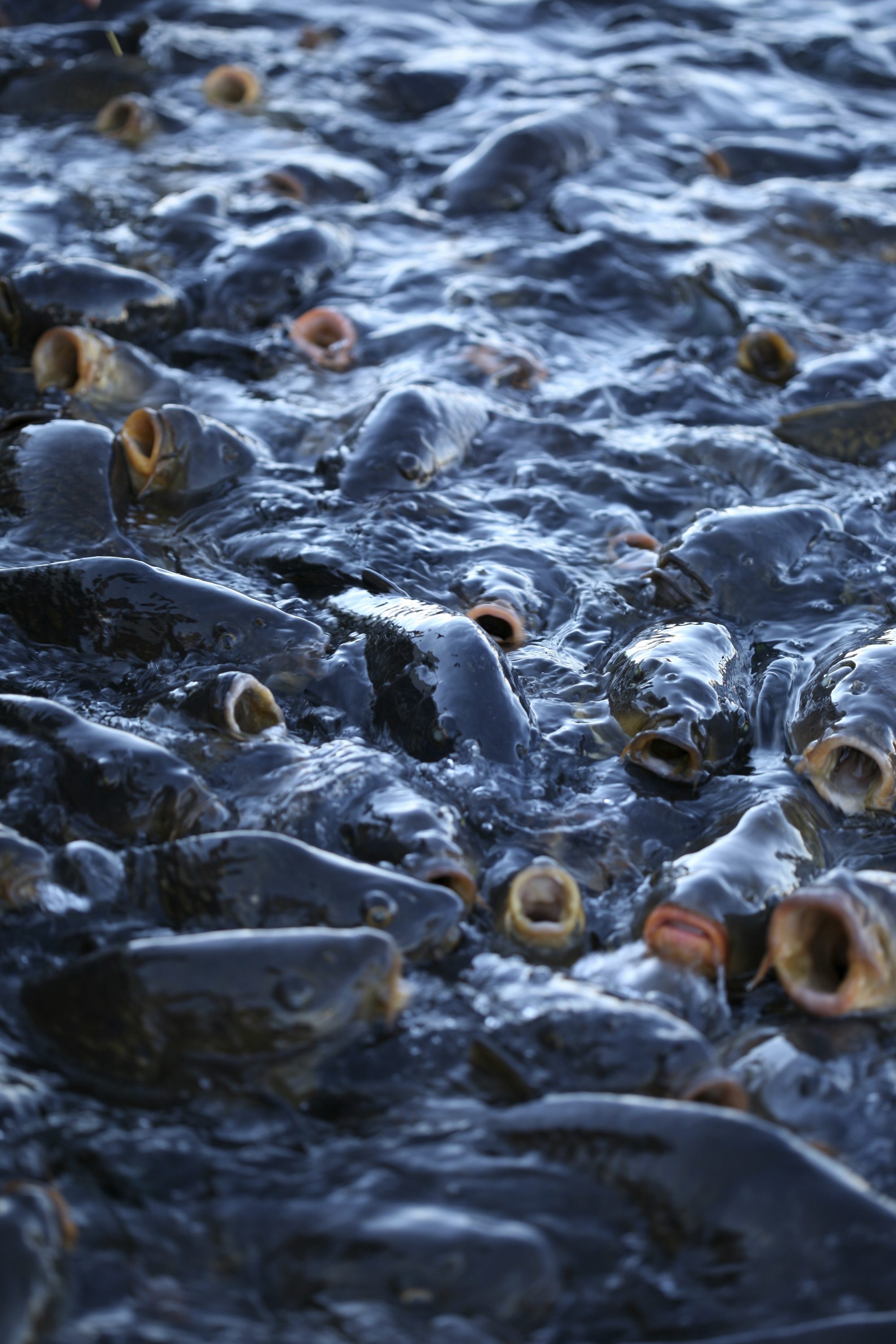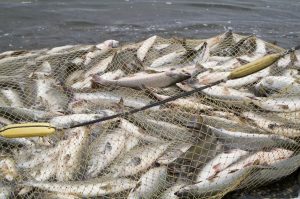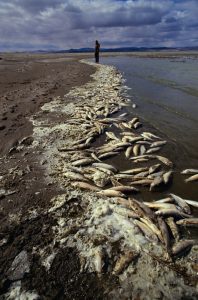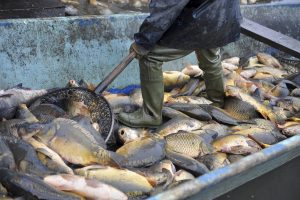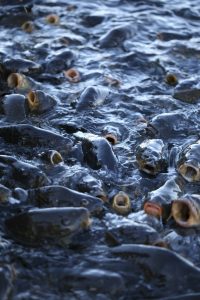The government’s own Farm Animal Welfare Council (FAWC) stated in a 1996 report on fish farming that fish have all the nerve chemicals and cell receptors necessary to experience pain and stress.
In the early eighties Dutch researchers found that fish carp hooked on a tight line were prepared to starve themselves of food for quite some time afterwards in order to try to prevent the associated painful experience from happening again. Whilst these experiments were clearly horrific and morally deplorable, they have highlighted the complex emotional lives of fish.
Fish have a whole host of sensory adaptations from both water pressure and movement detection, geomagnetism and even communication via electricity as per the black ghost knife fish. They even omit a fear chemical response to warn others of ‘schreckstoff’, translated from German as ‘scary stuff’.
Fish even exhibit playful and joyful behaviour, from small domestic aquarium-dwelling fish riding the bubble jet in an aquarium for fun to sharks and groupers approaching familiar divers for ‘petting’.
Groupers have been known to recognise and approach known divers for petting, purely it is supposed, because it feels enjoyable to the fish, despite the lack of food reward.
A very rudimentary form of sign language coupled with inter species co-operation was demonstrated through an unlikely hunting collaboration between a coral grouper and a reef octopus in episode three. The grouper indicates the presence of small fish darting in and out of the coral and hiding in crevices which the grouper cannot access. After chasing a fish into a crevice, the grouper turns slightly paler to attract the octopus’ attention, turns on his/her head and tail shimmies to signal to the octopus to access the fish through a small opening. The prey is flushed and taken by a lucky recipient.
But with so much insight we really are forced to question the use and consequential abuse of our underwater friends. To reduce such complex lives to barren aquariums to be gawped at offers no real educational insight into their natural lives. To confine them in underwater ‘prisons’ to intensively farm them for the plate is damaging to them and wholly unnecessary, since we don’t need to eat fish. To conduct invasive laboratory research on the tiny bodies of zebrafish for the misguided notion of a benefit for humans is also deeply unnecessary. Reference terms such as ‘stocks’ or ‘tons’ of fish caught conveniently reduces them to figures on a balance sheet in our minds.
The lives of fish matter a great deal to them and they should certainly matter far more to us. With the huge recent public outcry at the perceived elimination of animal sentience from UK post-Brexit law, perhaps it’s the right time for us to truly embrace fish sentience more widely. Perhaps this recent surge in awareness and fascination with our underwater friends will mean that more of us will seek to protect rather than harm them. ‘The scientific literature is quite clear. Anatomically, physiologically and biologically, the pain system in fish is virtually the same as in birds and mammals’ – Professor Donald Broom, Department of Veterinary Medicine, Cambridge University. Studies have shown time and again that fish will take action to avoid or relieve pain. We can only begin to imagine the pain when fish are killed by suffocation, clubbed over the head or have their gills slit so they gradually bleed to death. Other species are hugely affected, too; an estimated 300,000 cetaceans (whales, dolphins and porpoises) die in fishing nets every year, with an undocumented number escaping but suffering resultant stress or injuries.
We have the opportunity to remove ourselves from this grisly equation… Quite simply, stop the suffering, stop eating fish!
It’s never been such an easy time to go vegan. If you’re not already, please do order a FREE vegan pack with recipes and nutritional information.
Why not order some of our ‘killed in Cold Blood’ leaflets today and help spread the word to others about fish sentience and suffering? You can do this by emailing info@animalaid.org.uk.

